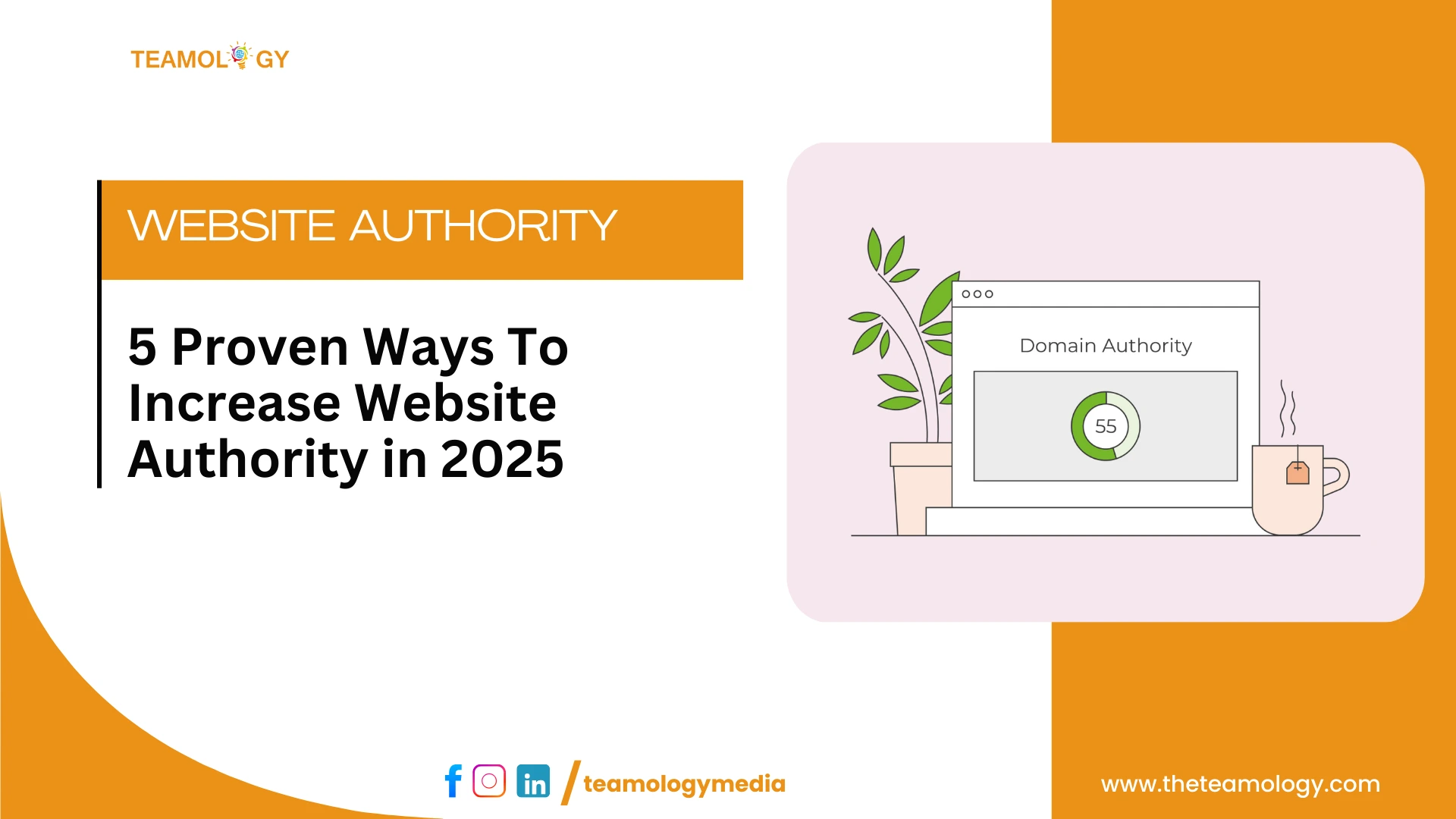Did you ever face these questions in your mind?
What makes a website more competitive than others? How do you make your website gain as much traffic as unique websites? How do you choose the proper steps for improving your online credibility? Have you ever tried to boost your website authority?
Owning a website may seem complicated, especially with innumerable websites constantly competing for better results. However, several factors might help a website gain more traffic.
Let me clarify the concept of “website authority,” its importance, and the steps you can take to boost your website’s authority.
What is Website Authority?
Website authority or domain authority is an SEO concept. It refers to a website’s overall reputation. Authority is a website’s strength, or its ability to rank well in the SERPs. Different metrics like Moz, Ahrefs, and SEMrush help build relevant content, high-quality backlinks, and overall SEO.
The main objective is to know how to improve the domain authority. In this blog, we will go into detail and show you how to leverage Website authority to your advantage.
Why is Website Authority Important?
- Higher Search Rankings – Search engines like Google prioritize websites with high authority. This means that a website with high-quality content and a strong reputation is more likely to rank higher on search engine results pages (SERPs).
- Increased Organic Traffic – A strong authority results in a higher ranking in the search engine. Therefore, it will attract more audiences to reach your website, leading to an increase in organic traffic.
- Better Credibility & Trust— Users mainly engage with and trust high-ranking websites. They are likely to follow the information from the high-ranking website.
- Stronger Backlink Profile—You must have high-quality backlinks to your website from other authoritative websites. Use backlink-building strategies to optimize your domain. First, search for authoritative websites in your niche, then offer backlinks to them. This will help boost your website’s rank and performance.
- Competitive Advantage – If you want to stand out from the competition and elevate your online visibility, you must build strong domain authority. Website authority helps you predict how the website will rank in the search engines, influenced by visibility and traffic. This allows you to understand your website’s position among competitors in the market.
How to increase website authority?
The combination of SEO best practices, high-quality content, measurements, and strategic efforts can improve authority. Follow the steps below to increase the website’s authority and brand visibility, leading to greater engagement and brand awareness.
1. Search for High-Quality Backlinks
You can get backlinks from websites with high authority and a strong reputation in the market. It will help you to boost your ranking in the search engine and organic traffic. Moreover, this will help your website appear more reliable, trustworthy, and beneficial to users.
To get quality backlinks, follow the following steps:
- Search for domains with good authority and create guest posts and blogs in your niche. Develop high-quality content for reputable websites and ensure that backlinks are placed naturally within the content.
- Create shareable, understandable content with in-depth guides, infographics, and research.
- Improve the visibility of your website by getting mentioned in news articles and industry publications
2. Monitor Bad-quality Backlinks
Monitoring and tracking the quality of your website’s backlinks will help you understand its quality. First, identify spammy, irrelevant, or unnatural links that violate Google’s guidelines.
- Monitor and schedule backlink audit.
- Use metrics like Semrush and Ahrefs to audit the quality of your backlinks.
- Set up alerts for new backlinks.
3. Publish High-Quality, Valuable Content
The most effective way to enhance authority is to create relevant content that attracts high-quality backlinks and more traffic. Make sure your content includes the following:
- Original, well-researched, and informative to provide real value to your audience.
- Use of SEO-optimized content with relevant keywords, headings, and meta tags.
- Ensure regular updates of relevant content.
4. Effective On-Page & Off-Page SEO
Improving your on-page and off-page SEO will enhance the user experience and search engine rankings.
- Title tags, meta descriptions, and header structures for better readability and ranking.
- Internal linking keeps visitors engaged by helping them move from one piece of content to another, which increases traffic.
- Fast-loading sites enhance the user experience and reduce bounce rates. Therefore, you must develop your site speed.
- Earn good-quality backlinks through guest posts and high-quality content.
5. Monitor and Track Your Website Authority
Monitoring and tracking allow a website to improve daily. Regularly monitoring domain ratings, website authority scores, and authority can help you measure your progress and identify the improvements needed.
- To measure progress, use tools like Moz (Domain Authority), Ahrefs (Domain Rating), Semrush, and Google Search Console.
- Regularly analyze backlinks, content performance, and SEO improvements.
Conclusion
Building and optimizing a website’s authority takes time. You must improve it consistently with strategic planning. Optimize your website’s performance by optimizing on-page SEO, building high-quality backlinks, and creating relevant content. Strong website authority not only increases your transparency in search engines but also builds trust.
Start implementing these valuable steps today!
Would you like to know any additional details on optimizing website authority? Reach us to get more assistance. Drop more comments to gain more helpful information on SEO tools and technologies.


